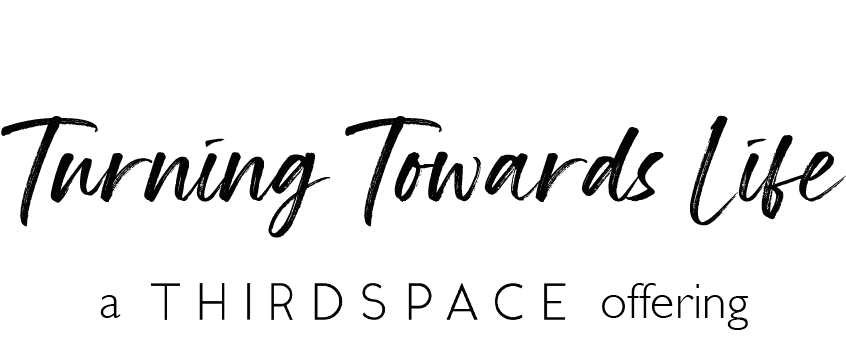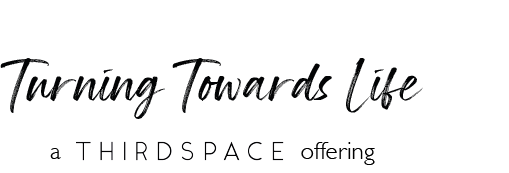Fear is Easy, Episode 62
Here's Episode 62 of Turning Towards Life, a weekly live 30 minute conversation hosted by thirdspace coaching in which Justin Wise and Lizzie Winn dive deep into big questions of human living.
You can join our members-only facebook group here to watch live and join in the lively comment conversation on this episode. You can also watch previous episodes there, and on our YouTube channel.
This week we begin with a source, Fear is Easy, written by Justin for his blog.
Our conversation covers the unavoidability of fear, how contagious it is, and the choices we must each make about whether to be uncritically 'had' by it, or whether to reach past it to bring forward other qualities that can help us to respond. Along the way we talk about the gifts we human beings can be to one another in the act of remembering - showing the others around us qualities they may have forgotten and turning, together, towards doing what's called for rather than freezing, numbing ourselves, or turning away.
Fear is Easy
Fear is easy.
Really easy.
It spreads, like wildfire - my fear becoming your fear becoming their fear becoming my fear again.
It makes us feel special - if I'm so afraid, there must be important things to do, like saving myself or saving the company or saving the country. At last, because of fear, I have a role to play.It makes things look simple - there is no choice here, no nuance, no time to talk together or think together about what's really called for, or if we're doing the right thing, or what the consequences over time might be. There is just action, this action, my action, and now.It helps us look right - how dare you suggest another way, a different way? Can't you see what's at stake here? How risky this is? How much we have to lose?
It saves us from having to listen to one another - if you're not with me you're against me, and if you're against me you must be wrong, and it's because you're wrong and all of those others of you who are wrong that we're in this terrifying mess in the first place.It saves us from having to think - that there might be another way to see this, that your point of view might have merit, or integrity, or something to offer.
It saves us from shame - at the ways I'm hurting you, or hurting myself, or hurting those who will come after us.It sells - the idea that I'm the best, that my way is the right way, that we're the chosen ones, that they're out to get us, that you have to work harder, that you must never stop, that our values are under threat, that we have to do this vital but terrible thing, that after all it's only business or politics or necessity.
It allows us to justify - these punishing targets, our culture of hyper-activity, my monitoring of your every move, the hours I expect you to work, our obsession with measurement and deliverables, my not listening, our race to the lowest common denominator, your being available at every moment, our treating others as objects.
Of course, fear works best when it doesn't display itself as fear. It's at its most potent when dressed up as civility, and best practice, and just-doing-business, and competency frameworks, and HR policy, and micro-management, and 'smart' goals, and this-is-work-not-a-playground-don't-you-know.
Fear is easy, and fear is cheap, but it's dignity that sets the human spirit free to contribute, and create, and address our difficulties, and listen, and change things, and improve our situation. And dignity takes work, and courage, and honesty, and sincerity, and integrity, and wisdom and compassion and humility and love.Yes, love. Not a much-respected word in many organisations or in politics, and easily dismissed by the easy politics and business of fear. But it is indeed love that reminds us how brilliant human beings can be, how capable, how varied, how much there is to marvel at in our situation and our capacity, and how much we need all of this right now, just as we always have done.

